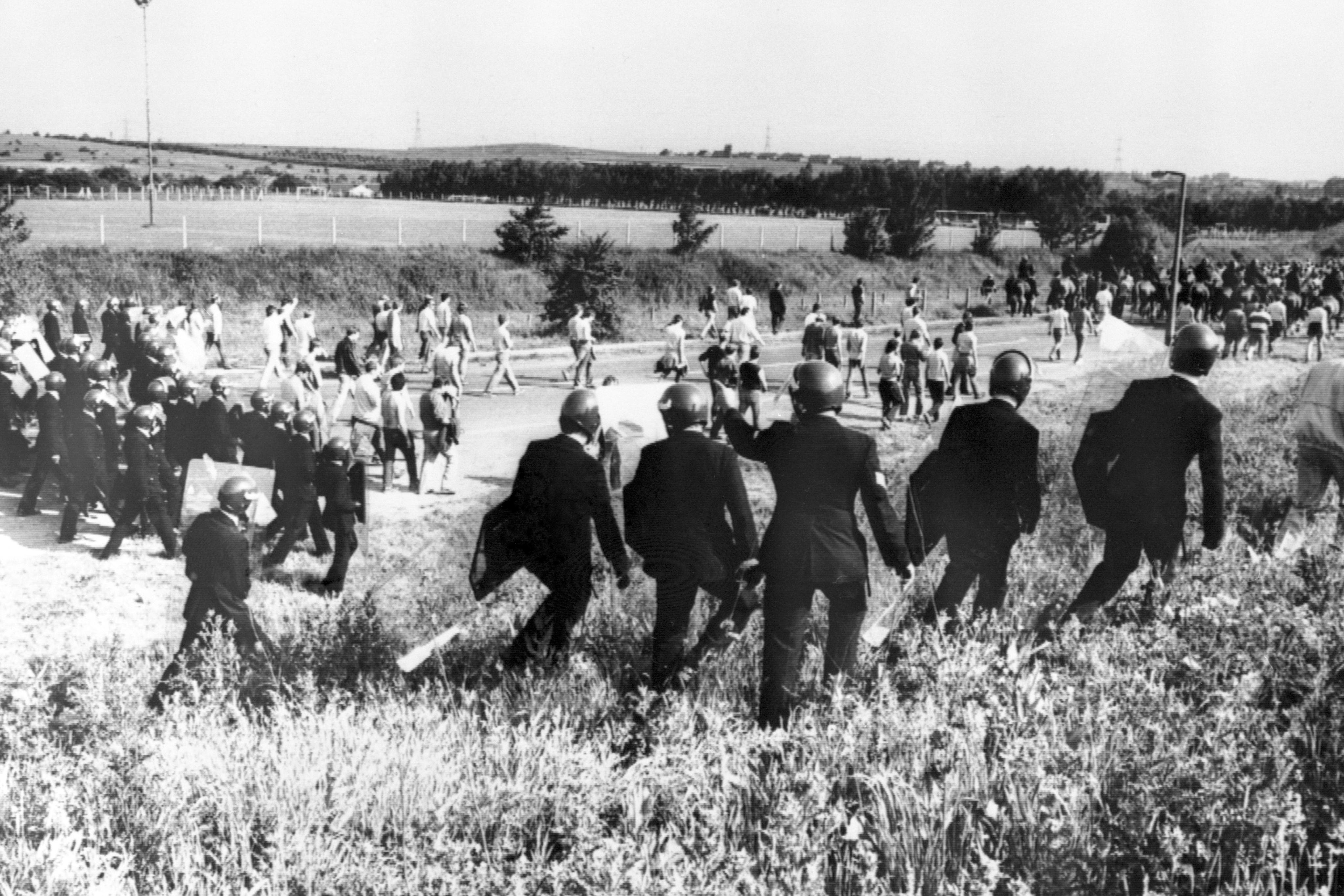Renewed calls for public inquiry into so-called Battle of Orgreave
New footage of clashes between police and striking miners was shown on TV.

Your support helps us to tell the story
From reproductive rights to climate change to Big Tech, The Independent is on the ground when the story is developing. Whether it's investigating the financials of Elon Musk's pro-Trump PAC or producing our latest documentary, 'The A Word', which shines a light on the American women fighting for reproductive rights, we know how important it is to parse out the facts from the messaging.
At such a critical moment in US history, we need reporters on the ground. Your donation allows us to keep sending journalists to speak to both sides of the story.
The Independent is trusted by Americans across the entire political spectrum. And unlike many other quality news outlets, we choose not to lock Americans out of our reporting and analysis with paywalls. We believe quality journalism should be available to everyone, paid for by those who can afford it.
Your support makes all the difference.Calls for a public inquiry into events on one of the most violent days of the year-long miners’ strike are being stepped up following new footage on TV of clashes between police and pickets.
The violent confrontation in June 1984 outside a coking plant in Orgreave, Yorkshire, led to many miners being injured and arrested, although their trials later collapsed.
A three-part Channel 4 documentary on the miners’ strike focused on the so-called Battle of Orgreave last week, broadcasting new footage of the clashes.
Campaigners say the documentary should have the same impact as the ITV programme on the Post Office Horizon scandal.
No-one in the police or government have ever been held to account for what the government directed and the police did. This is a serious threat to our already declining democracy
The Orgreave Truth and Justice Campaign (OTJC) said an inquiry was in the public interest to put an end to “years of lies and cover-ups”.
Kevin Horne, a campaign activist and ex miner who was arrested at Orgreave, said there was continuing upset and anger in former mining communities.
“Government and police documents from the time of the strike hidden away from the public until at least 2066 and growing numbers who support this campaign for truth and justice show it is necessary to hold an Orgreave inquiry to have an authoritative and full review of what happened and why we were treated so badly. We were only striking for the right to work.”
Campaign group secretary Kate Flannery said: “The Orgreave Truth and Justice Campaign submitted detailed and compelling evidence to the Home Office about why an inquiry should take place into the state-sanctioned police riot at Orgreave on 18th June 1984.
“Striking miners were violently assaulted, miners were arrested to be later acquitted by the court due to police lies and fabricated evidence.
“No-one in the police or government have ever been held to account for what the government directed and the police did. This is a serious threat to our already declining democracy.”
Former miner John Dunn said: “The Tories are obviously worried about an Orgreave inquiry further exposing their scandals and attempts to stifle dissent.
“Their recent raft of punitive and draconian policing anti-strike and anti-protest legislation is designed to criminalise us and shut us up. The right to protest and the right to strike is what we should expect in a democracy.”
A Home Office spokesperson said: “The Government has no plans to undertake an inquiry into the policing of the miners’ strike in 1984-85 in England and Wales.
“The policing landscape has changed fundamentally over almost four decades.”